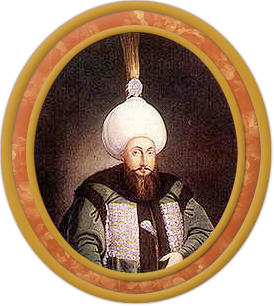|
http://www.osmanli700.gen.tr/padisahlar/28index.html
http://www.bizimsahife.org/Kutuphane/Osmanli_Tarihi_Ans/Osmanli_Tarihi_K/274_Kabakci_Mustafa.htm
Kabakçı Mustafa İsyanı

Selim III (reign 1789-1807) was one of the most remarkable Ottoman rulers: a learned man, a humanist, a reformer, a Sultan who was greatly loved by his people. He was forced to resign and finally killed by reactionarists.

Selim was the first Sultan who made a noteworthy effort to renew Ottoman army. (Well, let’s not forget the ill-fated Osman II whom the corrupted Janissary gangs tortured to death because he also had similar intentions - the boy was only 18.) After Ottomans suffered serious losses in the war against Russia Selim founded a system called Nizam-ı Cedid, including military troops inspired by the modern Prussian army. These new army units successfully fighted Napoleon in Egypt.
A coup named after its leader Kabakçı Mustafa followed. It was agitated by the grand vizier and the religious leaders. They say France also used the anger of Janissaries for its own revenge. The main scene of these events was Atmeydanı (Sultanahmet Square) where several statesmen were executed. Maybe the gentle-hearted Sultan waited too long before he gave orders to subjugate the revolting Janissaries, maybe his trusted troops were occupied in the Russian front. In any case, in the end Selim III was forced to say these words:
"Böyle isyankar tebanın hükümdarı ve halifesi olmaktansa olmamak daha iyidir.” It is better not to be the emperor and the kaliph than to be the emperor and the kaliph of such rebellious people.”
The 1807 revolt cancelled Nizam-ı Cedid and put an end to reforms in the fields of administration, education and army.
Kabakçı Mustafa isyânı, Osmanlı Devleti’ne maddî ve manevî bir çok zararlar verdi. Devletin ilerlemesi için gerekli olan kabiliyetli devlet adamlarının öldürülmesi kayıpların en büyüğü idi. The rebel of Kabakçı Mustafa caused great material and moral damage to Ottoman Empire. The biggest loss was the killing of those skilful statesmen whose contribution was essential for the development of the country.
Anyway, countdown had begun for the Janissaries who were to be fully abolished in 1826.
Edited (11/11/2012) by Abla
|

